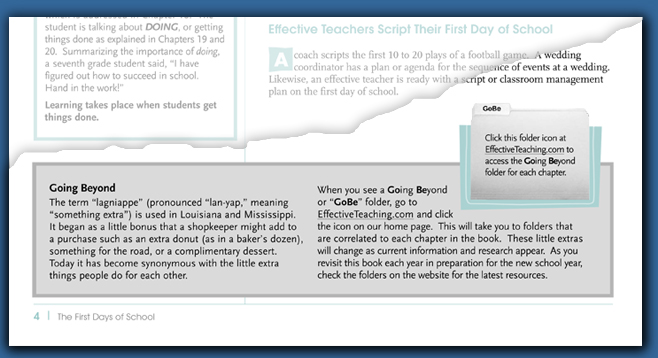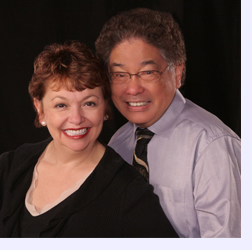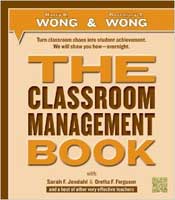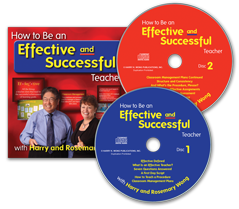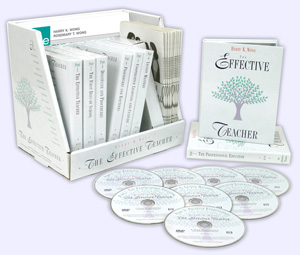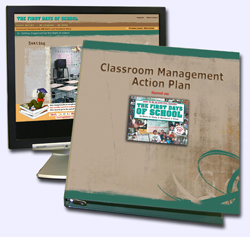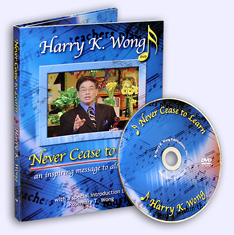|
 |
|
| |||||||||||||||
| by Harry & Rosemary Wong Special to the Gazette March 1, 2009 |
|||||||||||||||
|
Assessing for Student Learning
Brad Volkman does something unusual—almost unheard of—in his class. He GUARANTEES his students that if they work with him and follow his system of practice and self-assessment, they WILL NOT FAIL his course, no matter how bad they think they are at Math. Brad’s Math 14 class consists almost entirely of students who either failed Math 9 or were in a And he GUARANTEES his students they will not fail! Two Simple Statements Brad does not tell his students that they have to work harder than they’ve ever worked in their entire lives. He does not drown them in homework. And he certainly doesn’t intimidate them by saying, “You better get busy! I grade everything in here!” Instead, each day, the students are given a short quiz to test themselves on their understanding of yesterday’s lesson. (See Chapter 15 of The First Days of School for information on how to start _______ I can do this. _______ I’m still not too sure about this. Brad says that at first, his students are either shocked or suspicious of the two statements. They expect to be marked (“graded” in American terms) and when asked to assess their own learning, Brad is conscious that these students have been graded, scored, ranked, and streamed throughout their academic careers. They have been dismissed as “lazy” and “unmotivated” and humiliated by Drawing on a sports analogy, he tells them that he is their coach. He is not the enemy—with tricks and surprises and “gotcha” questions up his sleeve—trying to trap them.
Importance of Feedback In the same way a coach needs feedback from the team to figure out a training strategy, the checkmarks give Brad instant feedback on how well he has taught the class. They let him know if But first, Brad goes over the quiz so that the students can review the questions while the questions Brad says it’s not uncommon to get several different answers to a question. He says, “I ask the students who offered their solution to justify it to the class. Sometimes, I ask the class to vote on which of the suggested answers they think is right. This may lead to further attempts by the student Once his students have had a chance to volunteer and discuss their answers, then, and only then “It’s great to see the light bulb go on for my students and even greater when they see the light bulb go on for me as I see how I can improve my teaching,” says Brad. What Brad has done is to validate his students’ learning experience—from their side of the classroom. Instead of thinking, “I’ve covered the material. I can’t help it if they don’t “Us older guys can get sloppy if we’re not careful. I need to be reminded that even though I know the Math curriculum very well, and have taught this stuff for many years, my students are seeing it Creating a Safe, No-Pressure Learning Environment The key to these daily quizzes is that they are NOT graded. In Brad’s class, his students come to
Brad says, “When everything is for grades, some students would rather leave a question blank than
What is amazing is that after the class discussions, even the students who got all the questions on By having students discuss their answers, everyone is able to clarify their doubts and refine their understanding of the concepts. “It’s like the lesson really got taught twice—once the day before when I taught it for the first time and again the next morning when I go over the quiz,” says Brad. Motivating Students to Do Well Sometimes, students will put a check mark between the two options: _______ I can do this. _______ I’m still not too sure about this. It indicates to Brad that the student is pretty sure about it, but still has some doubts. Brad says, “I collect the quizzes and put a check mark in my records for those students who say
Imagine that! Students are more motivated by a quiz that is NOT graded than a quiz that is scored. For Brad, it went against all his previous training and practice. “It seemed that when the quiz was not ‘high stakes,’ but for their own personal feedback and to guide my instruction, the students relaxed and performed better on the quizzes. They actually tried harder. The atmosphere in the classroom became less threatening and more collegial,” says Brad. Motivating Students to Submit Homework Another one of Brad’s practices is the use of pink slips in his classroom—sheets of paper that give students the opportunity to explain why they have not done their homework. At the start of class, students either submit their homework or fill out a pink slip. (For more information on how to implement pinks slips in your classroom, see the September 2006 Teachers.net column.) There is no penalty for submitting a pink slip, but when a student submits too many, Brad tells them “Interestingly enough,” Brad says, “Even though I do my best to convince them that it is not punishment, the students are going to get their homework done in future. This is because
“Plus, it is far more effective as I get one-on-one time with them to make sure they understand the concepts. By having them think out loud while working on the problem, I get to look for patterns “For instance, a student was getting the area of a ten by three centimeter rectangle to be 900cm2.
Perhaps radically, when the students who come to see Brad at lunch prove that they understand the concept despite not submitting their homework, he feels no need to “get on their case.” “Would you want to retake your driver training if you’re already an accomplished driver?” Brad asks, “No one wants to keep re-doing the things they’re already good at.” Brad goes on to say, “Instead of keeping these students down with low grades, I’d sooner show them how smart they are, give them the grades they deserve, and hopefully encourage them to move up to a higher stream.” Setting Students Up for Success Brad creates the exams himself so that they mirror his own teaching style and emphasis. He says, “Set them up for success. Don’t try to trick them. My exam questions look very similar to my “While showing examples on the board, I often say, ‘On next week’s exam, you will be asked to do this, and in order to get full credit, your answer must include each of these steps.’ I also find myself saying, ‘Please watch for these common mistakes, I see them every year on this particular exam.’ “If it sounds like I’m teaching to the test, well, maybe I am. But I am okay with that. Because my test is perfectly aligned with what I teach, which in turn is perfectly aligned with the 38 outcomes listed in the Math 14 Program of Studies (Curriculum Guide). “Students need to know three things to succeed:
How to Be a Winner on Game Day Brad believes it’s important to generate anticipation and even excitement for exams.
In the same way all good sports teams warm-up prior to the opening whistle, Brad takes his class through a few examples of each type of question being covered—just before he gives the exam. In the unlikely event a student doesn’t do well, he asks them to meet with him over lunch, where he goes over the key concepts they missed before giving them a short re-test. This grade is averaged with the original one. Brad says, “Duke University basketball coach Mike Krzyzewski said that the key to winning is not losing twice in a row. In other words, learn from your mistakes. It’s the coach’s job to make sure that the mistakes are fixed. “There are no failing students, just failing performances—and those can be fixed.” Some have asked Brad if he is reflecting “the real world” by allowing the students a second chance Brad says, “Assessment for learning helps both the students and myself see where they are going wrong before it counts for a grade. The emphasis is on enhancing learning and helping students master curriculum outcomes, rather than providing a final grade.” As an indication of how well Brad’s teaching model works, his students are often “chomping at the bit” to get started on the exam. They tell Brad, “We get it, we get it, give us the exam already!”
Brad capitalizes on the fact that all students want to succeed. No one wants to lose. He says, “The students and I have a common goal—to be winners on game day!” This same concept is illustrated by Julie Johnson, primary grade teacher, as shown on page 258 of
Enabling Student Success Brad Volkman guarantees to his students on Day One that if they are willing to buy into his system, none of them will fail the course. He takes a major source of student anxiety out of their hands. Basically, he is saying, “I am a professional, I know what I’m doing, and I have a system that works. There is no need to worry at all.” In the end, one hundred percent of his students pass his class. Brad says, “Summative assessments can be bi-weekly or weekly, while formative assessment for learning needs to be happening daily and even minute-by-minute. This is what truly makes you a practitioner of your trade—teaching.”
Assessing for Teacher Learning Following Brad’s model, we offer the following: After reading this column, please select one of the statements: _______ I can do this. _______ I’m still not too sure about this. If you selected the first response, share with us your stories of how it worked for you in the classroom. If you selected the second response, we suspect it is more out of fear of change and failure than it is the lack of understanding. Don’t be fearful to try the technique on some obscure assignment. The students won’t be totally honest with you at first, but we suspect with time, the level of communication between you and your students will become much more collaborative. They will truly see you as someone who is helping them learn, not someone doling out grades. And then, if you are like some of Brad’s students and mark between the two statements, be sure to extend your study of this by reading the information in the Article Resources box. Perhaps that will increase your confidence and you’ll give it a try.
|
|||||||||||||||
|


